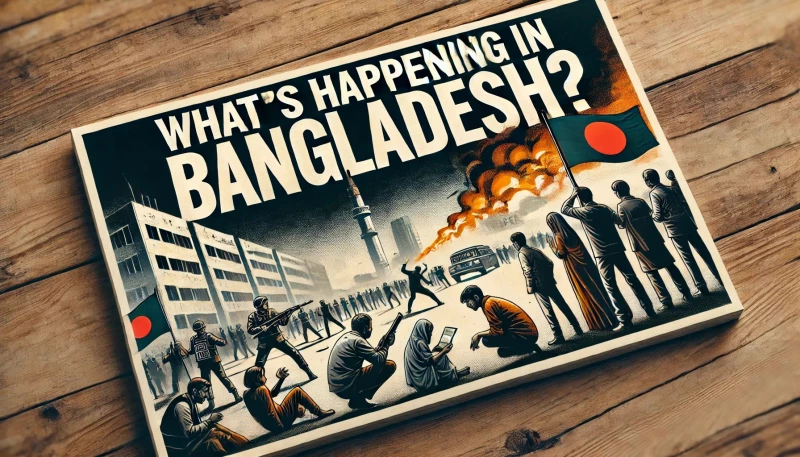The demolition of Madni Mosque in Islamabad has triggered anger and disappointment across Pakistan. For many citizens, this act was not only religiously offensive but also legally and morally unjustified. What makes this case even more controversial is the fact that Madni Mosque was built before the establishment of Islamabad in the 1960s, which raises the fundamental question: how can laws that did not exist at the time of its construction be used to declare it illegal? This single fact is enough to prove that the demolition was wrong. Yet, the government’s selective enforcement of the law—sparing powerful figures and their illegal constructions while targeting mosques—exposes a troubling picture of inequality and corruption.
A Mosque Older than Islamabad
Madni Mosque stood on Murree Road near Rawal Dam, long before Islamabad was carved out as Pakistan’s capital. At that time, there was no Capital Development Authority (CDA), no zoning regulations, and no concept of “greenbelts.” The mosque was therefore not an encroachment but a legitimate place of worship for local communities. By retroactively applying CDA’s modern planning laws, the government ignored both historical continuity and legal logic. A structure that predates the city itself cannot simply be dismissed as illegal.
Government’s Claim of an Agreement with Religious Leaders
The government has repeatedly stated that it did not act unjustly in demolishing Madni Mosque, citing an earlier understanding with religious leaders. However, the actual agreement was limited to relocating a madrasa facility, not the mosque itself. By using this deal as justification, the authorities blurred the lines and proceeded to demolish the mosque as well—something that was never part of the original arrangement.
Religious Sensitivity and Public Outrage
The demolition of any mosque strikes at the heart of Muslim identity and religious practice. Islamic tradition holds that once a mosque is established, it remains sacred and cannot be demolished until the end of time. This is why religious leaders and parties, particularly JUI-F, condemned the move as a violation of both Islamic principles and constitutional protections of religious freedom. Protests erupted across Islamabad, with worshippers symbolically rebuilding the demolished structure using its bricks. The incident deepened mistrust between the public and the authorities, as many saw it as a deliberate attempt to undermine religious institutions while turning a blind eye to the excesses of the powerful.
Government’s Justification vs. Historical Reality
In defense of its actions, the government claimed that the mosque and adjoining seminary were built on a “greenbelt” and that alternative facilities had been provided for students at the cost of Rs. 40 million. Officials also argued that the demolition was carried out with the consent of mosque administrators. Yet, these claims do not address the core issue: the mosque was constructed decades before Islamabad and its zoning laws existed. Replacing a historically significant religious site with another building cannot erase this injustice. The government’s narrative is weak and collapses under historical scrutiny.
Double Standards in Islamabad’s Urban Policies
What makes the demolition even more troubling is the glaring contrast in how the state deals with mosques compared to illegal constructions by the elite. For example, Bani Gala mansions, including the residence of former Prime Minister Imran Khan, were declared illegal but later regularized through fines rather than demolition. Similarly, Islamabad is riddled with over 90 unauthorized housing societies, openly selling plots and expanding without CDA’s approval. Despite years of warnings and cancellations of NOCs, these projects continue unchecked because of the political and financial influence behind them.
Even the Islamabad High Court has criticized CDA for lacking both the capacity and the will to enforce laws against powerful offenders. Yet, when it comes to mosques, bulldozers arrive overnight. This selective justice reveals the true face of governance: laws are flexible for the rich but rigid for the poor and for religious communities.
Plans to Demolish More Mosques
Reports suggest that the government has identified nearly 50 mosques and seminaries for demolition in Islamabad under the pretext of encroachment and beautification drives. If true, this exposes a systematic policy of targeting religious spaces while leaving massive illegal housing projects and state encroachments untouched. The hypocrisy is glaring: if luxury villas and elite housing colonies can be regularized, why can’t long-standing mosques be preserved?
Liquor Licenses in Islamabad
A few days ago, reports surfaced that the Islamabad administration issued four new liquor licenses to restaurants in the capital. This decision drew criticism from many citizens who questioned why the government is quick to facilitate such permits for commercial gain, while simultaneously taking harsh actions against religious sites.
A Symbol of Injustice
The demolition of Madni Mosque was not just the destruction of a building; it was the destruction of trust in fairness and equality before the law. It highlighted how historical, religious, and social contexts are ignored when it comes to the weak, while the powerful are accommodated through negotiations and legal loopholes.
If Islamabad’s planning authorities are truly committed to urban order, then the same standard must apply to all illegal constructions—whether mansions, housing societies, or mosques. Anything less is not law enforcement but selective injustice. Until the government establishes a fair and consistent policy, such demolitions will continue to be seen not as planning measures, but as acts of discrimination against religion and the common people.


















